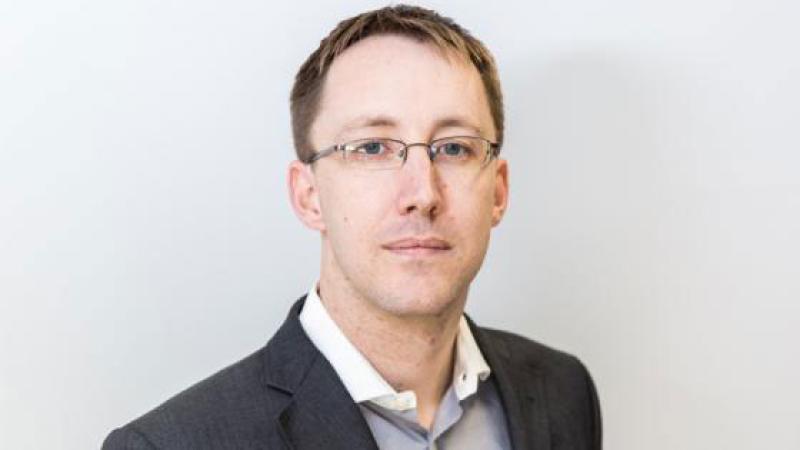The goal of University’s Different Conversations podcast is to champion the fascinating, unusual and topical work undertaken by our academic colleagues across the public sphere.

The podcast, founded by Dr Bradley Elliott – Senior Lecturer in Physiology at the School of Life Sciences – provides a platform for our academic colleagues to share expert and unique insight into their research and issues of the day. It is part of a range of public engagement activates by the College of Liberal Arts & Sciences, including a weekly blog and annual festival, all falling under the 'Difference' banner.
Dr Elliott has a unique role at the University. As a life sciences researcher, he has all the usual academic duties – teaching, research and administration – but one day a week works directly for the college to promote public engagement.
This initiative started seven years ago with the annual Difference Festival, an event where, “once a year, we kick open the doors to the university and invite the public into our campuses,” said Dr Elliott. “We try to show people what we do and why it’s important.”
Hoping to broaden the opportunities available for Westminster academics to highlight their work, Dr Elliott planned to create a lecture series. The idea was to involve colleagues from numerous disciplines – humanities, the sciences, art – getting together in front of a live audience to discuss the issues of the day and offer their own unique perspectives. “Then I’m sure, as everyone remembers, in March 2020, everything changed.” The plans were scrapped.
The format evolved from a town-hall discussion to something that would be easy to deliver and digest online – hence the launch of the Different Conversations podcast. The podcast (which can be viewed on YouTube and listened to on Spotify, iTunes, Breaker and moreGo to Anchor.fm page) is designed to focus on a variety of topical issues. Each episode, an academic colleague from the University is invited onto the podcast to offer their unique and expert opinion.
Gender identity and pronouns, memory science and ‘The Big C – Cancer, cures and cookbooks’ are just some of the themes explored in the podcast. There are multiple episodes that stand out to Dr Elliott, but one particular highlight was his conversation with Dr Miriam Dwek, Professor of Cancer Biology at the University.
“The plan was to speak about cancer research and research into cancer drugs, but we spent a quarter of the podcast speaking about sculpture and the arts. That’s how I discovered that Professor Dwek loves sculpture. We had a discussion about the portrayal of sculptures in the classical Greek style, which is all about perfection. But then she also spoke about imperfections, and the portrayal of people with tumours, deformations and other visible things. It was fascinating.”
Typically, Dr Elliott will sit down with a team of student helpers, some professional service colleagues and academic colleagues every three months to map out upcoming major events that discussions could be tied to – such as COP26 or Black History Month. Planning far in advance is important for preparation. Dr Elliott recently did an episode with Dr Lewis Dartnell, a Westminster academic focusing on Mars and exobiology, about the Mars Rover landing. With advanced planning, he managed to acquire a press release about the event and relevant graphics from Nasa.
On the other hand, the Difference Blog, updated weekly, is an excellent channel for quick commentary in reaction to an event. Dr Elliott utilised the blog recently to write a quick comment piece in reaction to this year’s Nobel Prize for Physiology or Medicine, which was awarded to two researchers for their discoveries in sensing temperature and touch – to the shock of many observers. “With the blog, it’s easy to produce something very quickly. So, if there’s a major event, it’s easy to write 800 words on it in 24 hours and have it on the blog the next day.”
Although it takes a lot of time and effort, Dr Elliott very much enjoys the work he does in promoting Westminster academics and their work. “I definitely enjoy it. I have a big mouth and I like to talk. It’s massively challenging and there’s a huge amount of background work that goes into it that people don’t see.
“Feedback so far has been really genuinely positive. However, academics don’t always realise that what they do is amazing, crazy and wonderful. Then they speak to people outside of their specialism, and they think it’s amazing, crazy and wonderful – because it often is. It’s easy to forget that sometimes.


